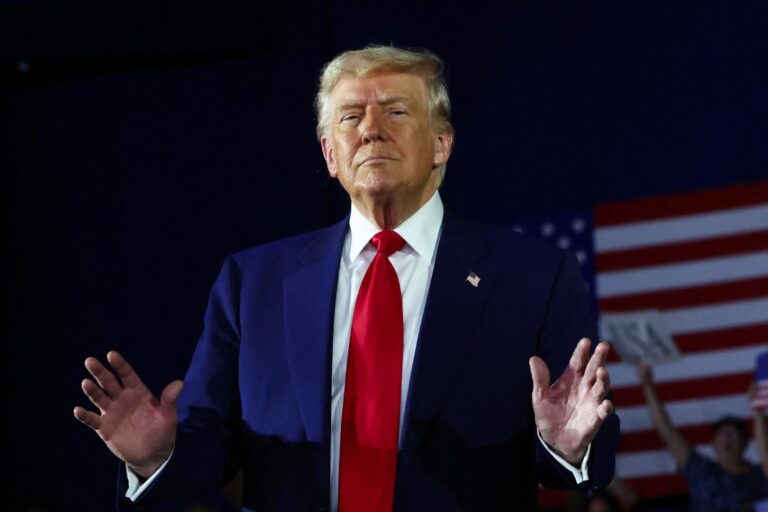Escalating Trade Conflict: Trump Alleges China Breached Tariff Agreement
Former U.S. President Donald Trump has recently accused China of flagrantly disregarding the terms of the tariff suspension pact agreed upon by both nations. In a series of outspoken remarks, Trump contended that Beijing has not honored its obligations, describing their conduct as a “complete breach” of the agreement. This development intensifies existing frictions in an already delicate trade relationship and raises fresh doubts about the prospects for future economic collaboration.
Analysts caution that these allegations could derail ongoing efforts to ease trade barriers and promote mutual economic growth. Among Trump’s primary grievances are:
- Expansion of import quotas that allegedly circumvent the tariff freeze conditions.
- Sluggish fulfillment of agricultural purchase commitments previously promised.
- Increased government subsidies to domestic sectors, potentially skewing fair market competition.
Such issues threaten to complicate attempts at stabilizing global markets already strained by geopolitical uncertainties and disrupted supply chains.
| Issue Area | Trump’s Allegation | Possible Consequence |
|---|---|---|
| Tariff Suspension | Breach by China claimed | Plausible reinstatement of tariffs |
| Agricultural Commitments | Lags behind targets significantly | Agricultural sector faces uncertainty |
| Industrial Subsidies Support | Marked increase reported | Market competitiveness threatened |
Economic Repercussions of Alleged Tariff Violations on Global Markets and US-China Relations
The accusations from former President Trump regarding China’s alleged violation of the tariff pause agreement have reignited tensions between two leading global economies, casting doubt over recent progress toward trade d√©tente. Should these claims prove accurate, they risk unraveling months-long diplomatic efforts aimed at reducing tariffs and fostering bilateral cooperation. The international financial community has reacted cautiously amid fears that renewed protectionism could disrupt supply chains and elevate costs for producers and consumers worldwide.
Main impacts anticipated across economic sectors include:
- An uptick in volatility within equity markets and commodity prices driven by increased geopolitical risk premiums;
- Difficulties in cross-border trade flows, particularly affecting technology exports and agricultural goods;
- A shift in multinational corporations’ strategies concerning investment locations and manufacturing operations;
- The potential for adverse effects cascading into emerging economies closely linked with US-China commerce.
| Affected Area | Likely Outcome | Market Reaction |
|---|---|---|
| Tariff Enforcement Policies < td >Reinstatement Possible  < / td >< td >Negative Impact РRising Costs< / td > | ||
| Investor Sentiment< / td > | Decline Expected< / td > | Heightened Market Fluctuations< / td > |
| Supply Chain Stability | Disruptions & Delays | Increased Logistics Expenses
< tr >< td >Global Export Growth< td>Softer Expansion Rates< td >Shrinking Demand Levelsnttttntttnnnnn |
Looking Ahead – Navigating US-China Trade Relations Amidst Growing Uncertainty‚ÄĮ‚ÄĮ‚ÄĮ‚ÄĮ‚ÄĮ‚ÄĮ‚ÄĮ‚ÄÉ‚ÄÉ‚ÄÉ‚ÄÉ‚ÄÉ‚ÄÉ‚ÄČ‚ÄČ‚ÄČ‚ÄČ‚ÄČ‚ÄČ‚ÄČ‚Ää‚Ää‚Ää‚Ää‚Ää‚Ää‚ÄÜ‚ÄÜ‚ÄÜ‚ÄÜ‚ÄÜ‚Äā‚Äā‚Ā†‚Ā†‚Ā†‚Ā†‚Ā†‚Ā†‚Ā†‚ÄÖ‚ÄÖ‚ÄÖ‚ÄÖ‚ÄÖ‚ÄÖ‚ÄÖ‚Äć‚Äć‚Äć‚Äć‚Äć‚Äć
As tensions persist between Washington D.C. and Beijing over alleged breaches related to tariff suspensions, former President Trump’s statements add complexity to an already intricate dispute impacting global commerce profoundly.
Observers worldwide remain vigilant regarding forthcoming responses from both governments since any escalation risks triggering widespread repercussions across international markets.
Maintaining open dialogue channels coupled with pragmatic policy adjustments will be critical moving forward if stability is sought within this pivotal economic partnership.
The evolving situation underscores how interconnected modern economies are-where actions taken bilaterally can ripple through supply chains spanning continents-highlighting why measured diplomacy remains indispensable despite political rhetoric.




